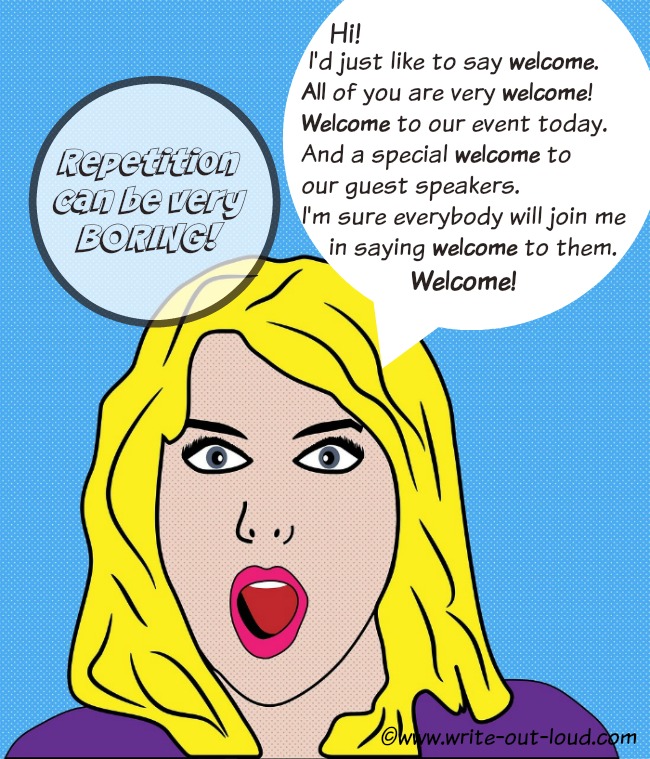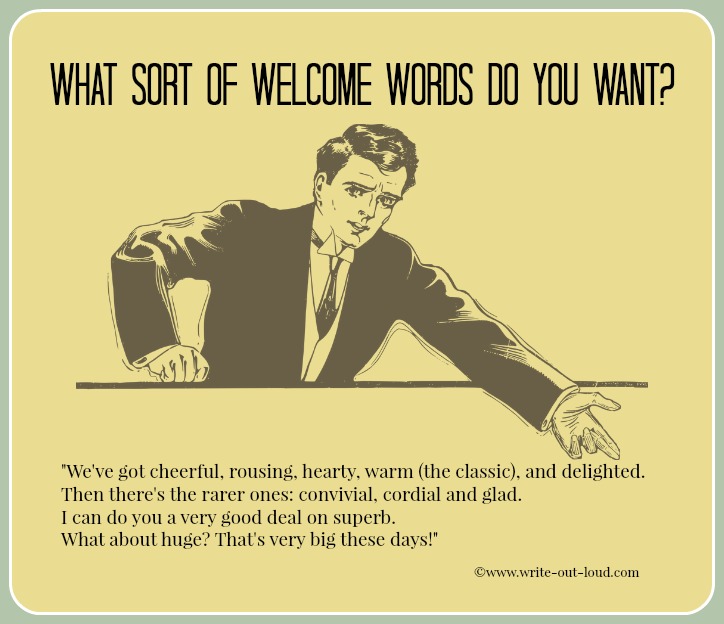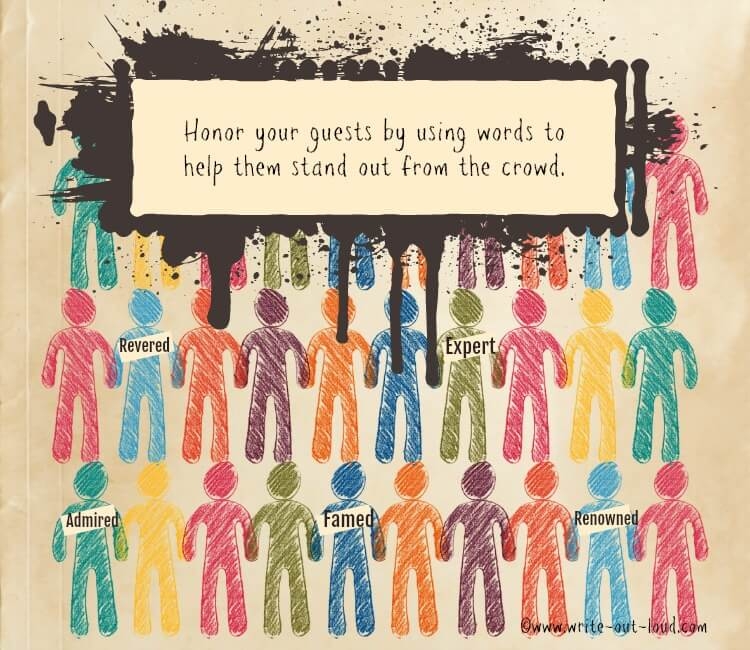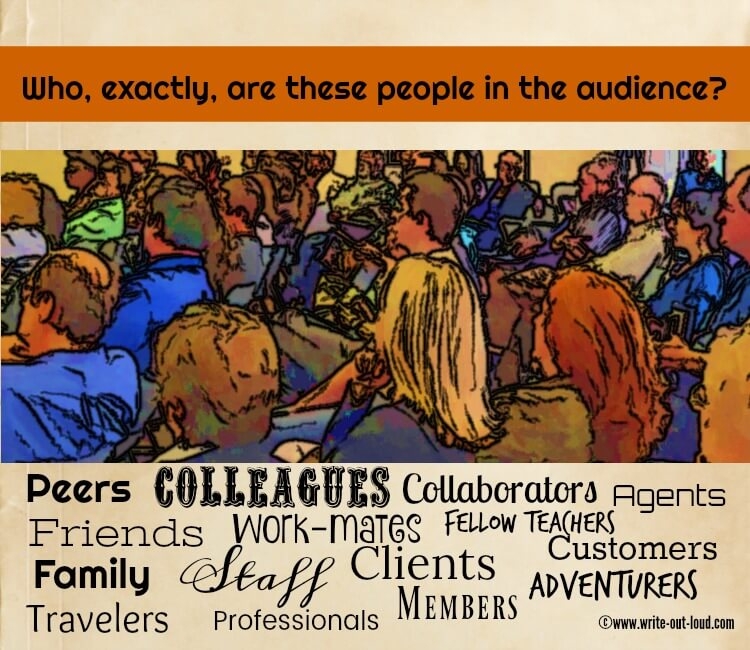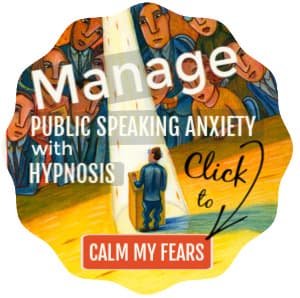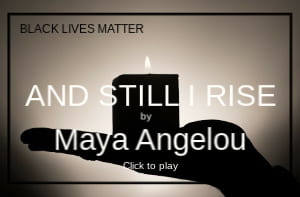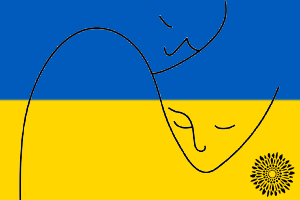- HOME ›
- Welcome speech ›
- Phrases for welcome speeches
Phrases for welcome speeches
50+ different ways to say welcome to your guests
By: Susan Dugdale
The challenge of a welcome speech is to find alternate ways to express yourself sincerely without resorting to a string of undifferentiated "same-old, same-old" words and phrases that have become meaningless through overuse to greet your guests with.
And there's an additional question to answer. Is the event formal or informal? Your response will guide the language choices you make.
What's on this page?
- help to decide whether you need formal or informal language
- examples of informal and formal welcome speech openings
- 50+ different ways to say welcome
- 28 example sentences
Do you need to use formal or informal language?
Is the welcome speech you're preparing formal or informal?
There are major differences. The words you use in an informal speech will be entirely out of place in a formal one. You need to know what is right for the occasion if you want your speech to be a success.
The video below explains the difference and provides six example speech openings to illustrate: three formal and three informal.
How to avoid repetition making your speech boring!
Repetition of a familiar word is easy to do and totally understandable.
Sometimes we can't find the words we want, and we get stuck in a vocabulary rut, using the same phrase or word over and over, and over again, trying to make it cover multiple and/or different situations.
And yet we know, words are just like clothes. One size does does not fit all.
What's the solution?
Here's three suggestions to individualize or tailor your words to fit your event a little better. And they'll be more interesting for the audience to listen to!
With care you'll find most will adapt either formal or informal use.
1. Add an adjective to the word welcome
Try working in an adjective to describe the quality of your welcome more fully.
I've provided an example sentence or two alongside each adjective to show how it could be used in context.
I know some examples are much more successful, (smooth to say and read), than others.
Some, quite frankly, clunk a little. (I say this with a wry smile ☺!)
If you decide to use the feature word in those that do, perhaps you'll find a way to use it more eloquently!
What sort of welcome are you offering?
It could be a(n):
- warm welcome
"Luckily the weather is on our side today! The sun and I are pleased to offer you a warm welcome." - hearty welcome
"Here's a hearty welcome, big and warm enough to encompass you all! To say we are thrilled to see you is an understatement." - cheerful welcome
"It's my pleasure to extend a cheerful welcome to you all! Your presence makes us very happy." - cordial welcome
"Fellow members, please join me in giving our guests the most cordial of welcomes." - sociable welcome
"Let's hear it for a sociable welcome! On the count of three, turn to your neighbor and say 'hello'. There are no strangers here, only friends we are yet to meet." - genial welcome
"It's my pleasant duty to bid you all a genial welcome." - convivial welcome
"On behalf of my colleagues, I wish you all a convivial welcome. We are going to have a merry and enjoyable time together." - agreeable welcome
"The flags are flying. The balloons are ready for release. It's a great day, one we've been planning and waiting for. I'm sure you'll concur, this is an agreeable welcome." - pleasing welcome
"It's gratifying to look around and see so many familiar faces. That's a pleasing welcome to what I know is a going to be a great
conference ... "
Or maybe it's a(n):
- glad welcome
"It's a glad welcome we bring to you this morning, filled with the desires, hopes and dreams we all share." - hospitable welcome
"We're delighted to offer the most hospitable welcome we can." - amiable welcome
"Dear guests, look around you! An amiable welcome full of friendship is yours." - gracious welcome
"Our desire is to extend a gracious and inclusive welcome to all of you. For now let's put aside our differences and instead celebrate what brings us together!"
What about a(n):
- genial welcome
"It's my pleasant duty to bid you all a genial welcome." - convivial welcome
"On behalf of my colleagues, I wish you all a convivial welcome. We are going to have a merry and enjoyable time together." - agreeable welcome
"The flags are flying. The balloons are ready for release. It's a great day, one we've been planning and waiting for. I'm sure you'll concur, this is an agreeable welcome." - pleasing welcome
"It's gratifying to look around and see so many familiar faces. That's a pleasing welcome to what I know is a going to be a great
conference ... "
Then there's a:
- pleasant welcome
"You know what's great about these events? You are always assured of a pleasant welcome. This is feel-good central and we aim ..." - companionable welcome
"Looking around I can see many familiar faces - peers, past and present colleagues. What a companionable welcome! It's great to see you all here ..." - grateful welcome
"Many of you have made a huge effort to join us today. On behalf of us all, we are deeply appreciative and offer you our most grateful welcome." - friendly welcome
"Today is the day we begin to learn to look through the eyes of others; to find out and experience what the world is like for them. It is also the day we grow bigger than our differences and offer to everyone regardless of historical rights and wrongs, a friendly welcome, an outstretched hand."
Perhaps a(n):
- appreciative welcome
"Wow, what a gathering we have here tonight. We've got dignitaries, celebrities, fans, and organizational members all brought together for one cause. Ours. Here's an appreciative welcome to you all." - superb welcome
"Ladies and gentlemen, the room is ready. The tables are set. The band is playing our theme song. And the waiting staff are preparing to take your orders. This is a superb welcome, fit for royalty, and that's what you are to us." - delighted welcome
"To our special guests; look around. See the smiles of everyone's faces? We are truly delighted to welcome you here today." - favored welcome
"Ladies and gentlemen, tonight we have stars in the sky, and on stage. We are favored to welcome some the brightest the world has seen."
Or a(n):
- honored welcome
"I look around the stage and am in awe with the collected expertise gathered here. We are deeply honored to welcome you." - big welcome
"Here's to a big welcome for our guests; Lady Amelia Thistledown and Sir Roger Godfrey!" - huge welcome
"Ladies and gentlemen, please give a huge welcome to ..." - rapturous welcome
"Do you hear the applause? The audience joins me in a rapturous welcome! We are thrilled to have you with us today."
2. What about the guests you want to welcome?
Think about the guests you want to welcome as part of your speech. What sort of guests are they? Is there a word, or two, you could use to describe them more fully?
Accurate descriptions of the people coming to the event, either as especially invited guests, or as members of the audience, helps build credibility and trust.
The care you take to find the right words is an excellent investment for everybody involved.
Could your guests be better described as:
- esteemed guests?
- brilliant guests?
- celebrated guests?
- dear guests?
- admired guests?
- acclaimed guests?
- cherished guests?
- respected guests?
- revered guests?
- wonderful guests?
- popular guests?
- much-loved guests?
- famous guests?
- expert guests?
- distinguished guests?
- honored guests?
- valued guests?
- appreciated guests?
- remarkable guests?
- renowned guests?
- knowledgeable guests?
- treasured guests?
3. What about the word "guests"?
Who are you talking to? Yes, everybody in the audience is a guest to your event but what could they be more accurately called?
Are these people your:
- peers?
- colleagues?
- associates?
- friends?
- family?
- patrons?
- members?
- classmates?
- workmates?
- co-collaborators?
- fellow-travelers, nurses, teachers ... ? (insert the appropriate descriptor)
- affiliates?
- visitors?
- citizens?
- cohorts?
- conspirators?
- comrades?
- companions?
- clients?
- customers?
And lastly, have fun experimenting!
Do try mixing and matching your words and phrases to fit the occasion. After all there are more flavors to "welcome" than vanilla!
Related pages:
- How to write a welcome speech - with a sample speech
- How to write a speech - step by step help - a good beginning point if you've never prepared a speech before.
- Back to top of phrases for welcome speeches
- Return to write-out-loud.com homepage
